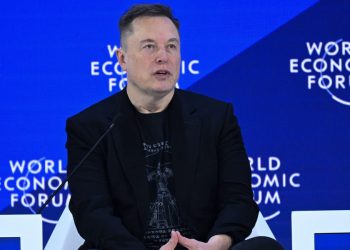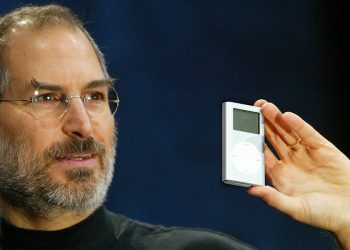- Apple will face hefty costs if Donald Trump sticks to his blanket tariffs pledge.
- Trump previously said he’s considering levies of more than 60% on Chinese products.
- IPhone prices would likely rise as a result, economist Jacob Channel said.
Apple got a break the last time Donald Trump was in office, but the president-elect’s proposed tariffs could cost the tech giant a lot during his second term.
CEO Tim Cook joined the chorus of tech leaders congratulating Trump on winning the 2024 presidential election with an X post on Wednesday. Maintaining a good relationship with the president-elect could be crucial for Apple, which secured government exemptions from costly tariffs during Trump’s first term. It’s unclear whether the company will be afforded the same benefits this time.
If Trump follows through with his pledge to impose 10% blanket tariffs on all imported goods and 60% tariffs on Chinese goods, finance experts said the effect on Apple would be negative.
“If you think your iPhone is expensive now, it’s probably going to get a whole heck of a lot more expensive if the company that makes it has to deal with a 60% tariff on whatever they import from China,” LendingTree economist Jacob Channel told Business Insider.
Although Apple has reportedly explored India as an alternative base for iPhone production in Asia, many of its products are still made in China. It also makes and sells its Mac computers in the country.
Greater China is a key region for Apple’s revenue — making up about 17% of its total sales in fiscal 2024. Recently, it has struggled in the area as local smartphone brands compete with the iPhone. The region still brought in $66.9 billion in 2024 sales — though that was down about 7.7% from the previous year.
If China decides to retaliate against the Trump administration’s proposed tariffs, it could also hurt Apple in the region.
“The new administration’s trade policy can likely have a material impact on Apple, especially with its critical China dependencies both on the revenue and supply side,” Dipanjan Chatterjee, a Forrester analyst, said.
Apple didn’t immediately respond to a request for comment on the outcome of the election from BI.
A Trump win isn’t all bad news for Apple. The tech company is currently facing a US antitrust lawsuit that accuses it of maintaining an illegal monopoly on smartphones.
Both Channel and Chatterjee told BI that the Trump administration will likely ease up on the antitrust pressure Big Tech companies, like Apple and Google, are dealing with.
“There probably will be, generally speaking, less scrutiny on those kinds of business practices,” LendingTree’s Channel said.
Since Trump has yet to take office, Chatterjee said the world will have to “wait and see” what policies become official.
- Apple will face hefty costs if Donald Trump sticks to his blanket tariffs pledge.
- Trump previously said he’s considering levies of more than 60% on Chinese products.
- IPhone prices would likely rise as a result, economist Jacob Channel said.
Apple got a break the last time Donald Trump was in office, but the president-elect’s proposed tariffs could cost the tech giant a lot during his second term.
CEO Tim Cook joined the chorus of tech leaders congratulating Trump on winning the 2024 presidential election with an X post on Wednesday. Maintaining a good relationship with the president-elect could be crucial for Apple, which secured government exemptions from costly tariffs during Trump’s first term. It’s unclear whether the company will be afforded the same benefits this time.
If Trump follows through with his pledge to impose 10% blanket tariffs on all imported goods and 60% tariffs on Chinese goods, finance experts said the effect on Apple would be negative.
“If you think your iPhone is expensive now, it’s probably going to get a whole heck of a lot more expensive if the company that makes it has to deal with a 60% tariff on whatever they import from China,” LendingTree economist Jacob Channel told Business Insider.
Although Apple has reportedly explored India as an alternative base for iPhone production in Asia, many of its products are still made in China. It also makes and sells its Mac computers in the country.
Greater China is a key region for Apple’s revenue — making up about 17% of its total sales in fiscal 2024. Recently, it has struggled in the area as local smartphone brands compete with the iPhone. The region still brought in $66.9 billion in 2024 sales — though that was down about 7.7% from the previous year.
If China decides to retaliate against the Trump administration’s proposed tariffs, it could also hurt Apple in the region.
“The new administration’s trade policy can likely have a material impact on Apple, especially with its critical China dependencies both on the revenue and supply side,” Dipanjan Chatterjee, a Forrester analyst, said.
Apple didn’t immediately respond to a request for comment on the outcome of the election from BI.
A Trump win isn’t all bad news for Apple. The tech company is currently facing a US antitrust lawsuit that accuses it of maintaining an illegal monopoly on smartphones.
Both Channel and Chatterjee told BI that the Trump administration will likely ease up on the antitrust pressure Big Tech companies, like Apple and Google, are dealing with.
“There probably will be, generally speaking, less scrutiny on those kinds of business practices,” LendingTree’s Channel said.
Since Trump has yet to take office, Chatterjee said the world will have to “wait and see” what policies become official.









